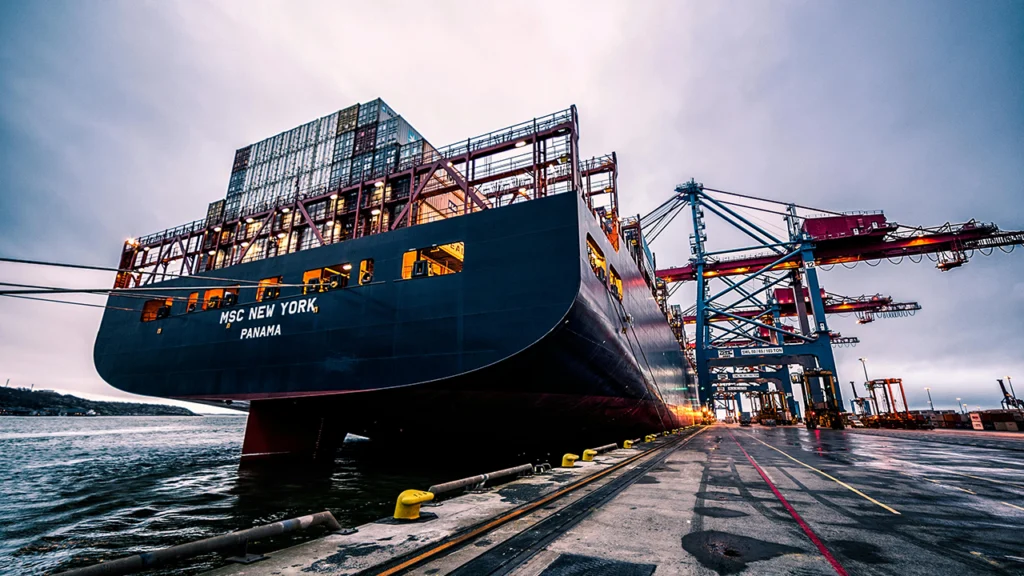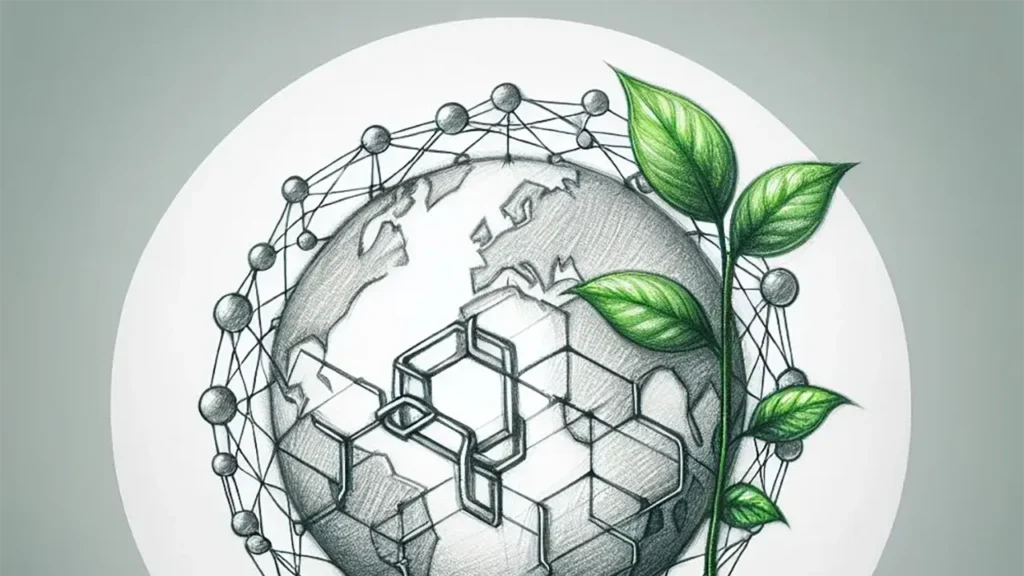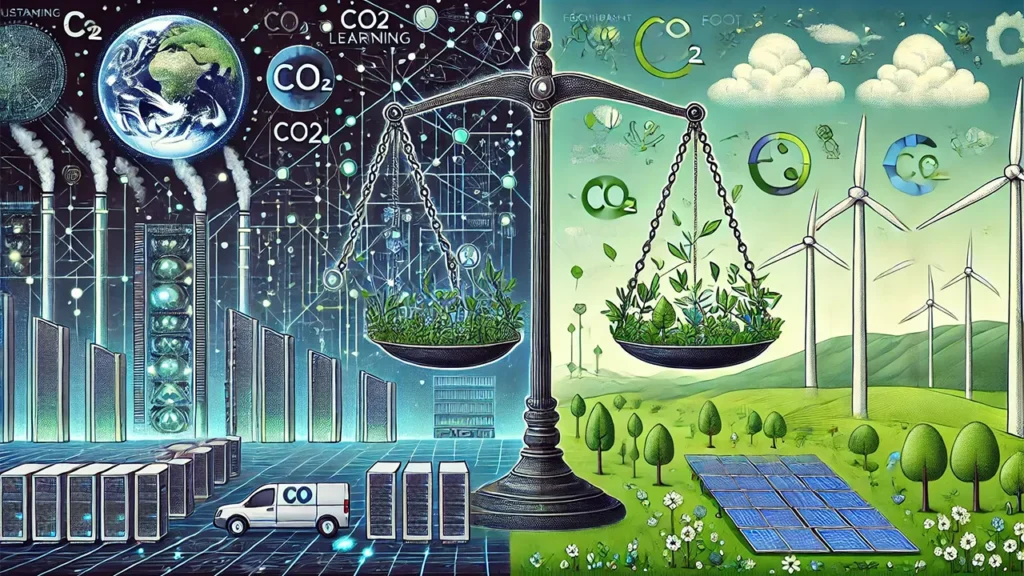Table of Contents
In a world increasingly focused on sustainability, transparent and efficient supply chains are more important than ever. But how can companies ensure their products are both environmentally and ethically sound? Enter blockchain technology – a game-changer that elevates transparency and trust to new heights.
Why do we need transparency in supply chains?
Modern supply chains are complex. From raw material cultivation to processing and final delivery, each component often travels thousands of miles and passes through numerous stages. With this complexity comes the risk of environmental violations, child labour, or unethical practices that are difficult for consumers to detect.
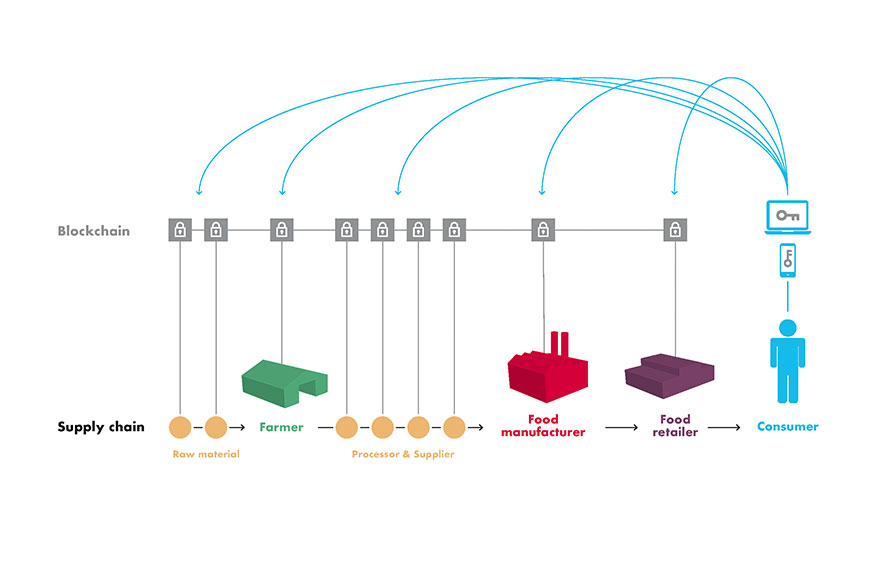
MPULSE: Blockchain: More transparency in the supply chain
Blockchain: A digital ledger with potential
At its core, blockchain is a digital, decentralised ledger that securely and immutably records transactions. Imagine every stage in the supply chain – from the farmer to the manufacturer and the retailer – leaving a digital fingerprint. This data is stored on the blockchain and accessible to all participants. The result? Unparalleled transparency.
How does blockchain support sustainability?
Consumers can track the origins of materials used in their products with precision. For instance, they can confirm that their coffee beans were sourced from fair-trade farms in Colombia or that their cotton originated from sustainable plantations with minimal environmental impact. This empowers consumers to make informed purchasing decisions and encourages producers to adopt ethical practices.
With blockchain, companies are held accountable for their claims. The public accessibility of blockchain data ensures that every environmental or ethical standard a company advertises is verifiable. This eradicates the possibility of misleading marketing strategies and helps build genuine trust with consumers, as they can independently validate the authenticity of sustainability claims.
Blockchain simplifies and automates traditionally cumbersome supply chain processes. By minimising manual paperwork and streamlining documentation, businesses not only save operational costs but also significantly lower their carbon footprint. For example, real-time tracking of goods can reduce delays and optimise logistics, leading to fewer emissions and a more sustainable supply chain overall.
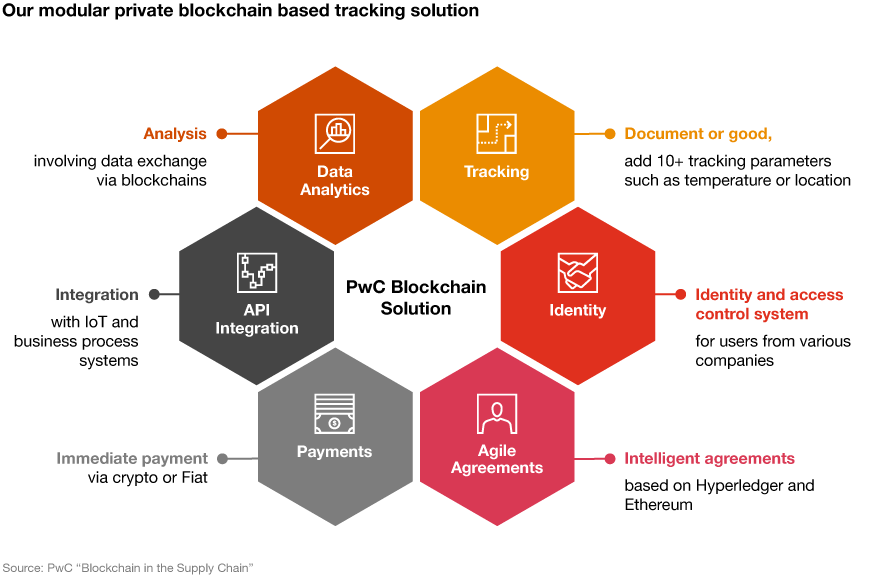
PWC: Blockchain is here. What’s your next step?
Real-world examples: Blockchain in action
- Food Industry: Companies like IBM and Walmart use blockchain to trace the origins of food products. This not only helps combat food fraud but also supports sustainable farming practices.
- Fashion Industry: Brands such as Stella McCartney utilise blockchain to disclose the origins of their materials and the working conditions within their supply chains.
Challenges and opportunities
Of course, there are hurdles. Implementing blockchain requires robust infrastructure and collaboration across the entire supply chain.
Challenges
- Infrastructure Requirements: Implementing blockchain technology requires significant investment in IT infrastructure and expertise. Many smaller companies might find it difficult to allocate the necessary resources, creating a potential barrier to adoption.
- Data Integration: Supply chains often span multiple regions and industries, each using different systems and standards. Integrating these diverse systems into a unified blockchain network can be complex and time-consuming.
- Scalability and Energy Consumption: While blockchain offers transparency, some implementations, especially public blockchains, can be energy-intensive. Balancing scalability and sustainability is an ongoing challenge for the technology.
- Legal and Regulatory Barriers: Blockchain adoption requires clear legal frameworks, especially for cross-border supply chains. The lack of standardised regulations can hinder its implementation on a global scale.
Opportunities
- Enhanced Consumer Trust: Transparent supply chains build credibility and loyalty among consumers who prioritise sustainability and ethical practices.
- Global Collaboration: Blockchain can facilitate collaboration among stakeholders in different countries, fostering trust and alignment towards shared sustainability goals.
- Innovation and Competitive Edge: Early adopters of blockchain technology can position themselves as industry leaders, driving innovation and gaining a competitive advantage in the market.
- Reduction of Waste and Fraud: By providing accurate, real-time data, blockchain helps minimise waste, detect inefficiencies, and reduce fraud throughout the supply chain.
Wrap-up: Transparency builds trust
Blockchain is more than just a tech buzzword – it’s a tool that revolutionises how we structure supply chains. For businesses, this means not only a more sustainable future but also a competitive edge in a world where consumers increasingly value transparency.
Are you ready to make your supply chain green and transparent? Now is the time to embrace blockchain as a key technology and take responsibility for the future.
Literature
- Volvo Says Users Can Track Source of Battery Metals in Its EVs: https://www.wsj.com/articles/volvo-says-users-can-track-source-of-battery-metals-in-its-evs-54f6e4f7
- How the Aura Blockchain Consortium convinced luxury competitors to collaborate: https://www.voguebusiness.com/story/technology/how-the-aura-blockchain-consortium-convinced-luxury-competitors-to-collaborate
- How Walmart brought unprecedented transparency to the food supply chain with Hyperledger Fabric: https://www.lfdecentralizedtrust.org/case-studies/walmart-case-study
- Blockchain is here. What’s your next step?: https://www.pwc.de/en/strategy-organisation-processes-systems/blockchain-in-the-supply-chain.html
- Blockchain: More transparency in the supply chain: https://www.mpulse.de/en/movinggoods/blockchain-more-transparency-in-supply-chain

